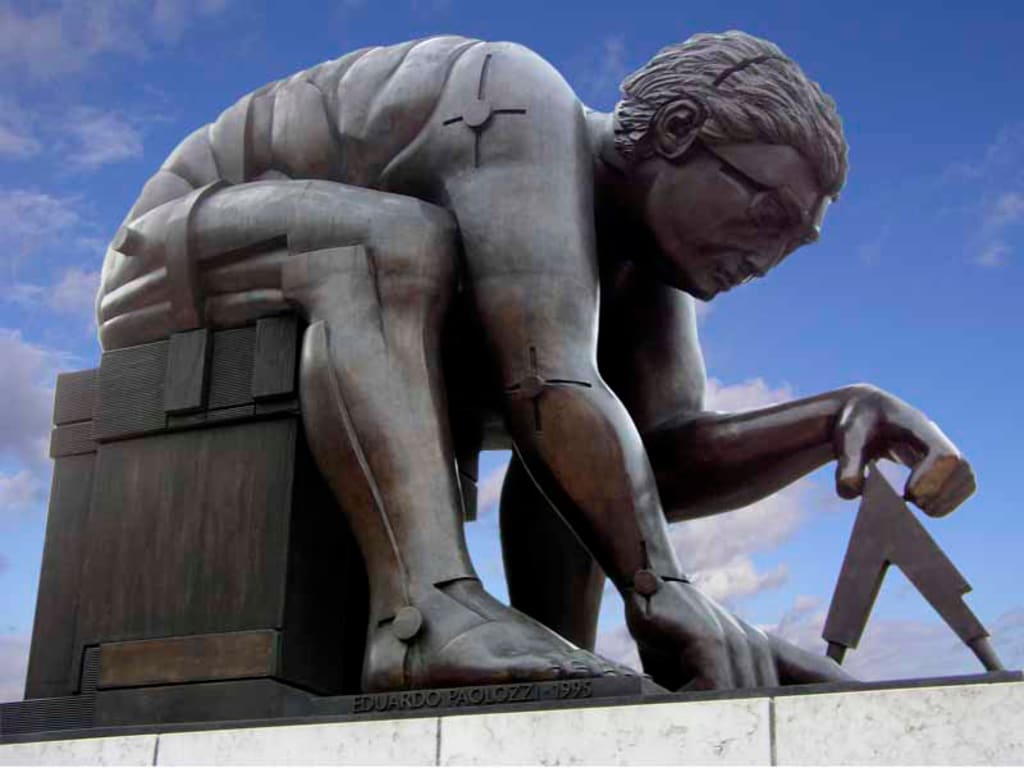
"The Bose-Einstein condensate is a state of matter in which extremely cold atoms clump together and act as if they were a single atom."––Wonderpedia
"Isaac Newton produced many works that would now be classified as occult studies and his scientific work may have been of less importance to him than his quest to rediscover the occult wisdom of the ancients. Anyone who thinks that Newton's worldview was purely mechanical in nature is in error."
–Prof. John Escher
"Newton was not the first of the age of reason, he was the last of the magicians."
–John Maynard Keynes
Cast of Characters
Professor Escher,
Lucasian Professor of Mathematics, Co-founder LEPR (LowEnergyPhysicsResearch) Group, Keynes College, Cambridge.
Dr Abelard,
Scout, Bakelite Industries
Professor Cornwall,
Leader, LEPR Group; Fellow, Keynes College
Herr Doctor Professor Weil,
Visiting Fellow, Keynes College
Spode,
Porter, LEPR Group; Keynes College
Dr Lake,
Research Fellow, Keynes College.
Dreaming

Escher was wandering in woods with willows singing.
Cornwall was dreaming of lady-boys; Lake, just boys.
Weismann was walking down a corridor only to stumble on Escher conducting aclandestine experiment.
The other professor was peering into a crucible whence sprang the superabundant treasures that funded the whole enterprise.
He peered more closely at the spectacle.
Six silver coins lay melting, the markings that gave each their currency sliding from their surfaces and dribbling down each molten face, pooling with the graven images on the other coins where they became just one smoking, coagulating disc of silvery liquid.
Pouring from a curiously-shaped vessel Escher was laying a fine blood-red dust upon the face of the disc and all was suddenly a-boil – the silver foamed and fizzled, tiny flecks of crimson adhering to its bubbling surface.
Herr Doctor Professor Weil peered more closely at the material and observed what seemed to be a mass of tiny rubies, stuck to what was now a creamy disc of cooled gold.
Reflected back at him was a rotund, creamy white form in which he recognized his own portly image. Alarmed, he took a step back and somehow fell into the crucible.
He felt a terrible electrical-like shock as he was overwhelmed by a rush of icy-hot water, and looking at his watch, Weil could see its face and figures slipping from his wrist and recombining at a point directly before his feet.
He tumbled into the dark well, and woke to drenched pyjamas.
Spode, meanwhile, was guarding the Safe and dreaming of what he would do with all the treasure once he woke up.
Day-Dreaming
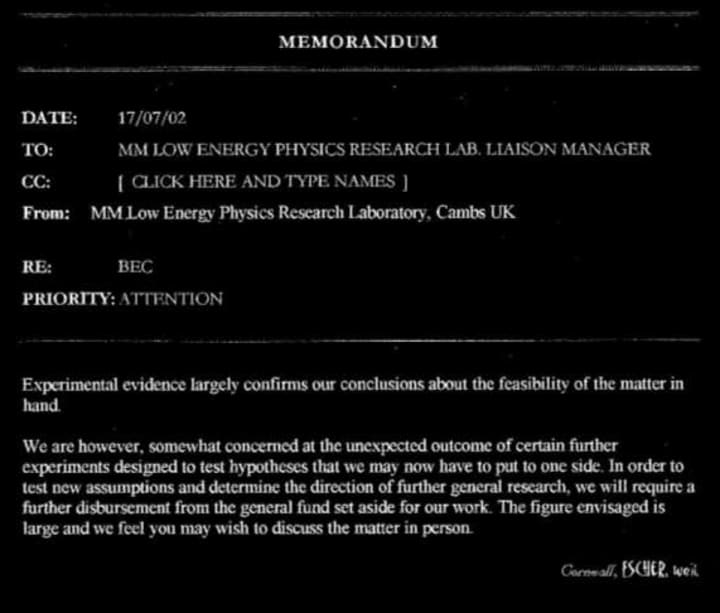
On the plane over from America and on his way to the Fens along a largely empty motorway, that without the traffic congestion, had regained all the lush, free- flowing lines and surfaces that it had once before enjoyed, Dr Francis Abelard had been thinking and reading.
It was an indication of the seriousness with which the company viewed the memorandum from the research lab that he had travelled all this way in person. The company frowned on travel and had made it almost an article of faith that it would discourage it in others by selling itself to anecology-conscious public as the planet’s eco-guardian. The fact was that BI's (Bakelite Industries) strictures were not entirely altruistic—it had, after all, sizeable investments in micro-communications and quantum tele-transportation technology.
The corporation that Abelard represented was an empire built on plastic (or more specifically the inherited patent for Bakelite) and an enormous amount of money had already been poured into this particular enterprise, with little to show for it so far.
The tycoon at the head of the company, a descendant of the eponymous Bakelite, was nevertheless a fabulously rich man, comparable in these terms to the Gates dynasty and he knew that a breakthrough in providing the world with an effectively infinite source of energy would probably make him the richest man ever. He had money to spare and although the sums were impressively large, he was not an impatient man and understood that this sort of research could take years (other attempts at both hot and cold fusion certainly had) and if they and other ground-breaking projects were anything to go by, he could expect to pay out far more before any returns could be expected. Nevertheless, the new sums involved, as the scientists had suggested, were likely to be very large indeed, and he wanted to know that his putative patent was still a secret—and to a lesser extent, that the money that was being spent was not being frittered away.
To this end, he had decided to send Dr Abelard, a chemist, who fulfilled the role of general scientific advisor to the magnate. Abelard had got the job through the sort of contacts that only a well-to-do New England family might possess—the usual clutch of nest eggs: Ivy-league old boys, family friends and the right sort of money—but he fulfilled his role with commendable thoroughness and flair. Any new development that might be exploited was brought to the magnate’s attention by the observant doctor, although, unusually, he had had no hand in alerting the tycoon to the Cambridge research project.
This was not surprising since the tycoon had been approached quite privately by a senior member of the research team and had somehow managed to charm an enormous research grant out of the old man, without once referring the matter to the corporation's other scientists, including Abelard. As a result, Abelard was somewhat ill-disposed to the project, and although he had finally been given some responsibility for its oversight, he did not feel it to be his own as he did the other R&D’s to which he had brought the gift of financial life.
As he swept across the Atlantic in the hydroplaning sea craft, he felt less the beaming uncle descending on his excited nephews with unexpected riches; more the stern aunt whose money is being wasted and about which she intends to do something. What that something was, Abelard had no idea, but the resentments and anxieties working away in his psyche, well beneath the conscious awareness of anyone so superficially self-aware as Abelard, ensured that he would do something.
Meantime, Abelard chewed the matter over and had confirmed to his solipsistic delight that the scientists were engaged in discovering a super-molecule of plastic that might then spill superabundantly forth along the highways and super-byways of the electrical and insulating equipment universe.
Plastic! Brimming oceans of plastic that performed all the old functions of the poly-this’s and poly-that’s that bound up the tender impulses that traversed the globe, directing its body and goading its mind. Due to a shortage of oil, the plastic that had permeated nearly every aspect of human life and which had, in the time it takes a dustman to pick up a plastic bag of plastic garbage, had gone, just simply vanished, tearing the heart valves from the chests of overweight young men, ripping the clothes from the backs of the masses, knocking over their food bowls and entertainment’s and banishing from their lives the lightweight, the gaily coloured and the throwaway it seemed, forever.
As a consequence, surviving on its reconstituted diet of heavy, durable New ‘N-F’ Non-Fossil Bakelite, a substance infused with the smoky, sultry, rather dull tones of a melancholy past that the colourised Filmes Noires had once wrought so romantically, the public salivated over reminders of the bejewelled past and slated this appetite on celluloid from the sixties, the pinnacle of in-your-face plastic.
Plastic: that was the one thing apart from cheap and easy energy that the world still craved, and a Bakelite empire (with heavy investments in micro- electronics and quantum mechanical teletransportation), was the one that was going to make it all come true, thought Abelard.
Breakthrough
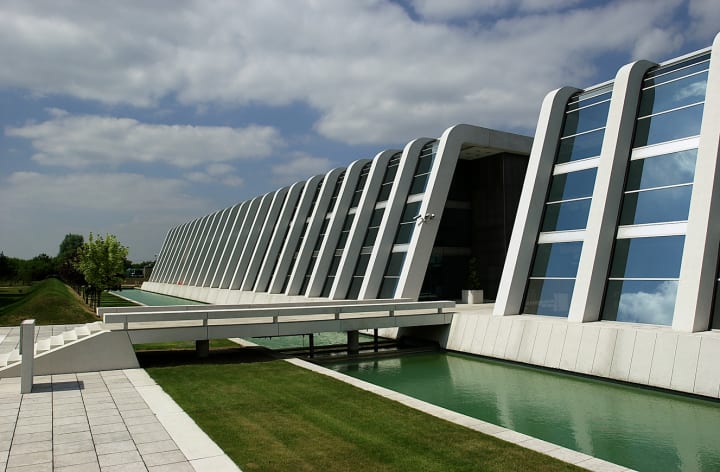
One of Abelard’s resentments was that he had not, in his opinion, been thoroughly briefed. The old man had given off an embarrassed air, but had made it clear that the project was so secret and so important that everything was being conducted on a need-to-know basis, and as far as the old man was concerned, Abelard need really not know much at all.
“Just take a look over the place! Try and enjoy yourself! England’s great!”
As far as what ‘they’ were up to, not even the scientists themselves were entirely sure. They were well aware of what, or more truly how they were doing what they were doing, but not necessarily why, unless it was just to see what happened, a rather un-Scientific approach it must be conceded, but one nevertheless that had gone more or less as it theoretically should, and had moreover been urged on them Escher.
More or less, for the Energy released in the little starburst that signalled the Condensate’s collapse, had been far greater than Cornwall and most of the others had expected.
There was a sense of unreality about the scene as, outside, the gently undulating landscape with its hopeful young saplings bristling in the breeze and the clouds journeying steadily west over the squat glass and metal buildings remained resolutely indifferent to what had taken place.
The cool, calculated proportions of the lab’s interior, the planning, the infinitesimal accuracies of their measurements and preparations, all belied this unexpected turn of events.
Cornwall, the senior scientist in the small group of professorial colleagues that was engaged in this research, laid his hand on one of the large insulators that lay on a workbench. He could feel the cool, creamy ribs of its ceramic torso as his palm enfolded and gripped the object.
In their attempt to meet the energy crisis, they were seeking a comprehensive understanding of the properties of an apparently unique and man-made phenomenon—the Bose-Einstein Condensate—a super-positioned cloud of individual particles that behaved as, and indeed to all intents and purposes was, one utterly condensed ‘super-atom.’ From this, they had hoped to derive a source of energy.
Research had been going on for years, and although much was understood, little practical use had been made of a material (a 5th state of matter it was suggested) that seemed to offer so many possibilities.
Indivisible matter that behaved like energy! Whilst government scientists had dreamt of impenetrable armour, matter-wave bombs and even matter-wave guns, it had taken the personal intervention of a wealthy entrepreneur to direct attention away from warfare towards a more civil (and civilised) use.
Daylight
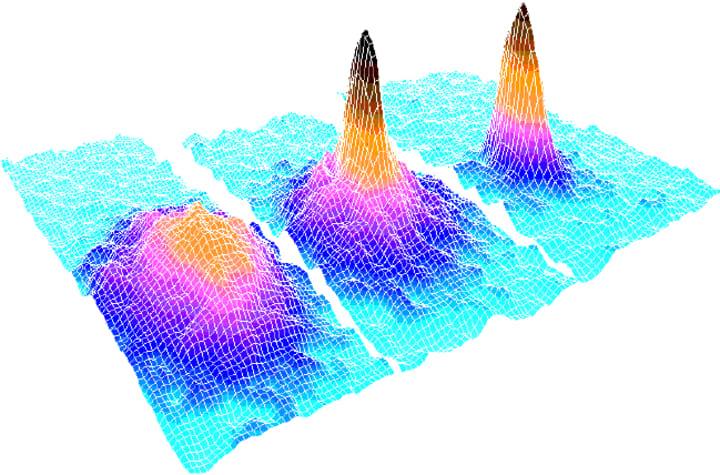
The scientists had been stuffing atoms into an area itself no bigger than the individual particles themselves, and at the point where they had rammed—no, ‘rammed’ was really too violent and intrusive a word, for the condensate had rather unexpectedly sucked with amorous intensity on the froth they had provided it with, drawing into itself greater and greater quantities of nitrogen until their supplies were nearly exhausted.
Then, once the tap had been turned off, there been an almighty crack and the glass cell in which the encapsulated condensate was held had appeared momentarily to ‘breathe.’ The strength of the force that had produced the thunderclap was only underlined by the fact that the glass walls of the flask were some centimetres thick.
Then all was still.
“…If the capsule had shattered…” but that hadn’t happened.
"…Our little goddess!”
Weil’s customary expressions of warm affection were a nervous facade.
“Did you see that bitch blow? The…” here Lake begged the pardon of all present, “the girl’s got some mouth on her! Is that thing leaking?” He frowned as he viewed the dials.
Escher was peering into the glass vessel, his nose almost touching the capsule.
Cornwall steadied himself. “I think we had better clear the lab.”
*
This they would keep under wraps for the time-being, but there was little need for secrecy where their Top Secret research was concerned. Indeed even if the greater part of the Cambridge research data had been given away free in copies of The Sun- Times, not many would have been any the wiser.
The maths. The chemistry. The physics. The metaphysics. These were only fully comprehensible to all but a few of the world’s scientists, and most of these were already party to the project.
In short, although its existence was a badly kept secret, the exact nature of the work was sufficiently obscure for few to know what was really going on, including, as been alluded to, some of the scientists themselves.
Others, untrammelled by the facts, and speculating as to what the fabulously funded scientists were up to, had with a wild surmise come up something that actually hit the mark in some respects.

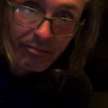




Comments
There are no comments for this story
Be the first to respond and start the conversation.